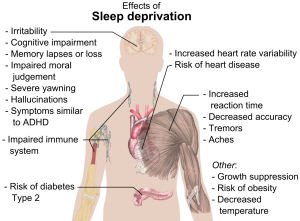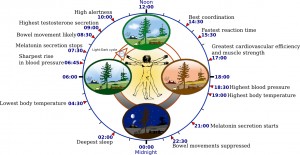Evidence increasingly suggests that insufficient or disturbed sleep is associated with metabolic disorders such as type 2 diabetes and obesity, and addressing poor quality sleep should be a target for the prevention — and even treatment — of these disorders. Addressing some types of sleep disturbance — such as sleep apnea — may have a directly beneficial effect on patients’ metabolic health, say the authors. But a far more common problem is people simply not getting enough sleep, particularly due to the increased use of devices such as tablets and portable gaming devices.
Source: The Lancet
Evidence increasingly suggests that insufficient or disturbed sleep is associated with metabolic disorders such as type 2 diabetes and obesity, and addressing poor quality sleep should be a target for the prevention — and even treatment — of these disorders, say the authors of a Review, published in The Lancet Diabetes & Endocrinology journal.
“Metabolic health, in addition to genetic predisposition, is largely dependent on behavioral factors such as dietary habits and physical activity. In the past few years, sleep loss as a disorder characterizing the 24-hour lifestyle of modern societies has increasingly been shown to represent an additional behavioral factor adversely affecting metabolic health,” write the authors.

Addressing some types of sleep disturbance — such as sleep apnea — may have a directly beneficial effect on patients’ metabolic health, say the authors. But a far more common problem is people simply not getting enough sleep, particularly due to the increased use of devices such as tablets and portable gaming devices.
Furthermore, disruption of the body’s natural sleeping and waking cycle (circadian desynchrony) often experienced by shift workers and others who work outside daylight hours, also appears to have a clear association with poor metabolic health, accompanied by increased rates of chronic illness and early mortality.
Although a number of epidemiological studies point to a clear association between poor quality sleep and metabolic disorders, until recently, the reason for this association was not clear. However, experimental studies are starting to provide evidence that there is a direct causal link between loss of sleep and the body’s ability to metabolize glucose, control food intake, and maintain its energy balance.
According to the study authors, “These findings open up new strategies for targeted interventions aimed at the present epidemic of the metabolic syndrome and related diseases. Ongoing and future studies will show whether interventions to improve sleep duration and quality can prevent or even reverse adverse metabolic traits. Meanwhile, on the basis of existing evidence, health care professionals can be safely recommended to motivate their patients to enjoy sufficient sleep at the right time of day.”
Story Source: The Lancet
Advertising

All information provided for information & education purposes only. Nothing published on https://dietmy.com is intended as substitution for medical advice, diagnosis, or for any treatment.


